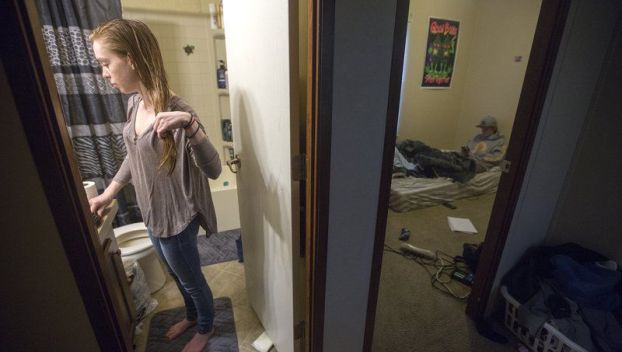
Cnhi Network
Homeless, at-risk students take non-traditional routes to diploma
TRAVERSE CITY, Mich. — Nobody prepares Paige Risden's breakfast before she departs each morning. Nobody reminds her to ... Read more

TRAVERSE CITY, Mich. — Nobody prepares Paige Risden's breakfast before she departs each morning. Nobody reminds her to ... Read more